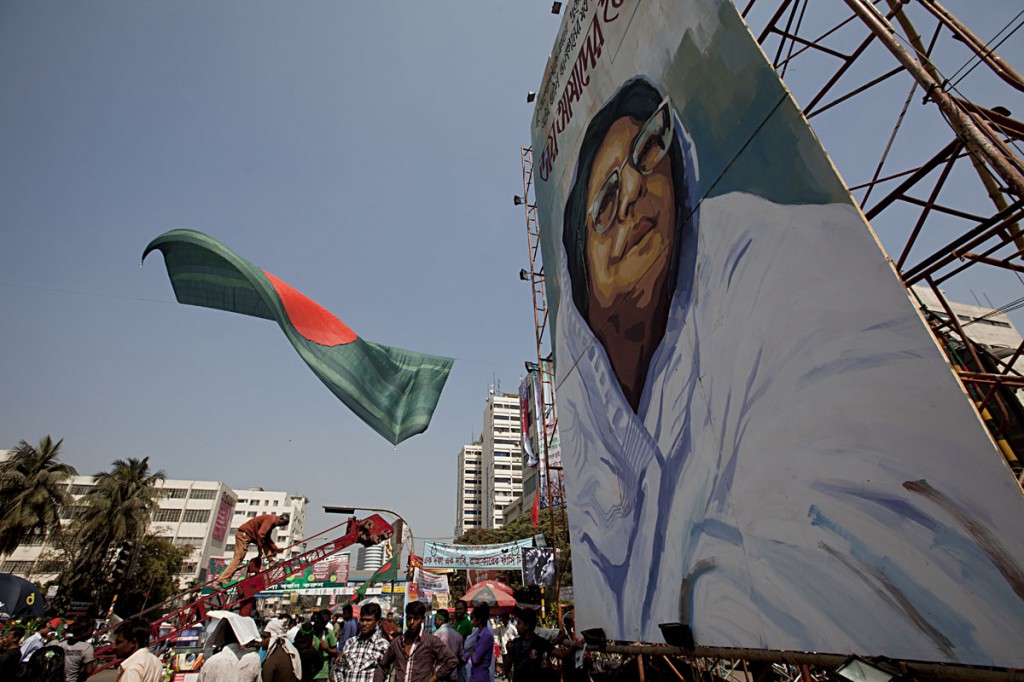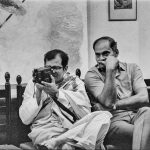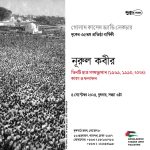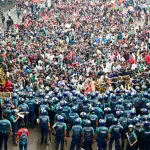
Keeping the door ajar, so she wouldn’t get accidentally locked out,
Amma stood waving at the doorstep of 1, Birkdale Road, long after the taxi was out of her view. I didn’t bring it up then, but as I headed for Heathrow, I remembered the stories about Jahanara Khala that Amma used to tell us. It was almost exactly nine years earlier, on our arrival in London, that Georgie had given us the news. Khala had been ill for a while, but her death was still sudden, and a blow to us all. This obituary was written for the Guardian.
Jahanara Imam
Midwife to a bloody birth
It was a simple diary, tender, scary, wistful memories from a woman who had lost her husband and her elder son in nine months of bloody war. Many books have been written about the birth of Bangladesh but Jahanara Imam’s diary, like nothing else, touched a chord amongst Bangladeshis who in fear, anger and hope had survived that bloody time.
The life of Imam who has died aged 65 epitomised the determination that characterised Bangladesh’s freedom fighters. And her struggle didn’t stop with the nation’s birth. She campaigned relentlessly against those nineties fundamentalists whom she charged had been seventies collaborators with the Pakistani Army.
On March 25, 1971. the west Pakistan-based military regime cracked down on what was then east Pakistan. Jahanara Imam, her son Rumi and her husband Sharif a hitherto apolitical engineer were hurled into the ensuing liberation struggle. Rumi joined the freedom fighters and his parents’ home became a base for clandestine operations.
In the nine months that followed. Jahanara was a cook, driver fund- raiser and mother to the guerrillas who infiltrated Dhaka, the highly guarded capital, and confronted the Pakistani Army. Then her son and husband were arrested. She never saw them again.
Post-independence, the gradual rehabilitation of razakars – collaborators into Bangladeshi politics was watched with horror by many. Imam was particularly incensed by the emergence of Golam Azam as Bangladesh’s most prominent Islamic fundamentalist. She accused him of complicity in the Pakistani Army’s campaign of rape and murder, and fought for suspected war criminals to be tried.
She received death threats, faced arrest for treason, and dying of cancer, was beaten by the police. But public support and her own determination were too great for the government to restrain her. In March 1992, almost a million people assembled at the site of liberation 20 years before, for a denunciation of war criminals. In a political climate where fundamentalists are emerging with increased political clout the loss of Jahanara Imam, writer, activist and one of Bangladesh’s best loved and most revered woman, will have a political impact far beyond the fact of her death.
Shahidul Alam
Thu Jun 26, 2003
__________________________________________
Jahanara Imam, born May 3, 1929; died June 26, 1994.





Leave a Reply
You must be logged in to post a comment.